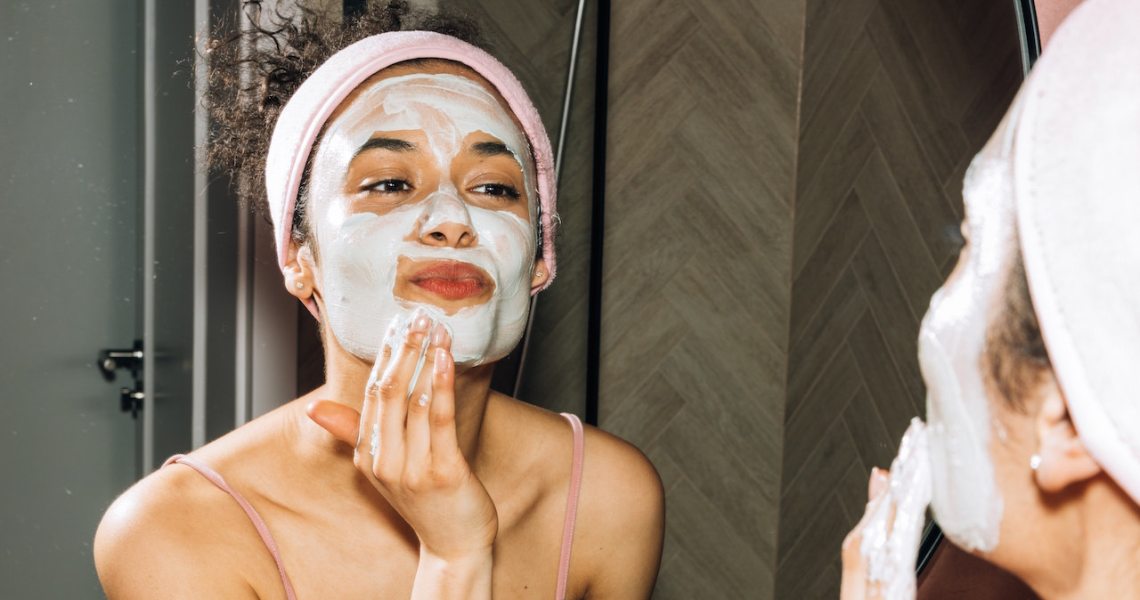Beauty brands dedicated to one product category are slowly disappearing.
Brands that once focused on a specific beauty category, like facial skin care, makeup or wellness products, are expanding beyond their initial parameters. It is no longer novel or curious that a makeup brand also offers skin care, nor odd that a brand of any kind offers deodorant. For example, clean makeup brand Kosas debuted body wash in June following a deodorant launch in June 2020. The latter was its first body care product and is currently its No. 1 best-seller. Meanwhile, Hello Products, which began as a toothpaste brand in 2009, launched deodorant in June 2020, while Native, which began as a deodorant brand in 2015, launched hair care in February. As a result, traditional beauty brand no longer exists, as every brand could be placed under the catchall term “personal care.”
Saje, a Canadian wellness brand that first launched in 1992, is no stranger to traversing categories in the name of self-care. Saje first began selling essential oil roll-ons before expanding to ointments, salves, lotions and other body and skin-care products over the next decade, according to Cynthia Chahine, Saje senior director of marketing. Though Chahine said customers understood why Saje expanded to these categories in the early aughts, she said she had seen a rapid increase in category expansions marketwide since 2020.
“In our experience, there were few barriers around claiming a position as a brand that created body and skin-care products because these products are important in helping people holistically feel better and connecting them with the healing power of plants,” she said of the natural aromatherapy and essential oil brand. “Out of necessity, many brands [in the past year] expanded their portfolio to better cater to the various needs of their consumers. This year, we shifted to focus more on products that could support our community during the pandemic, such as launching our 100% Natural Hand Sanitizer.”
Meanwhile, Amyris-owned Biossance, which first began as a facial skin-care brand based on its hero ingredient, squalane, has begun its own expansion beyond the face. It launched body care and deodorant on June 15. Given both the seasonality of the body care launches and Biossance’s origin as a facial skin-care brand, the expansion into body care does not require much customer education or acclimation, said Sheila Pollak, Biossance CMO. Instead, Biossance focused on using its body care products to discuss on social media and its e-commerce the sustainability aspects of its squalane ingredient (it is a synthetic alternative to squalene, which comes from shark liver) and packaging, as well as its charitable partnership with Oceana to protect ocean health and safety.
Typically, when brands seek to boost their topline sales, they expand to new market territories or launch an additional product. But a drive for exponential sales growth could also drive the expansion to new categories in its entirety. According to previous Glossy reporting, Biossance is on track to earn up to $160 million in sales in 2021.
Pollak said that other factors influence Biossance’s and the overall beauty industry’s expansion across multiple categories. She pointed to the overwhelming number of brands on the market today and said customers are responding to this by opting for fewer brands on their shelves that align directly with their values.
“Consumers are taking more time for self-care and are taking a more holistic point of view on wellness,” she said. “They are looking for simplicity by having fewer brands in their life, [but ones] that mean more to them. They’re making choices much more conscientiously now.”
The long-term result of this particular customer buying habit is that individual brands will continue to respond by launching more products in more categories. Retailers are also getting on board, with the likes of Sephora, Ulta, Credo and Detox Market and more adding sexual wellness, oral care and deodorant to their aisles over the past three years. This may ultimately create a self-fulfilling paradox of choice for customers. In turn, brands have to step up their focus on engaging with and educating their customers in more thorough and personal ways. Back in March, Biossance focused on engaging loyal customers via its first-ever virtual “Community Summit,” in which the brand handed out samples of the then-upcoming products to its 100 top-spending customers.
“The market and the consumer choices are endless, and the market is so crowded. For the average consumer, it’s sometimes overwhelming to make the right choices,” Pollak said. “They’re looking for trusted brands and communities to be a part of, so connecting with a smaller set of brands [more deeply] makes their purchasing choices easier.”




